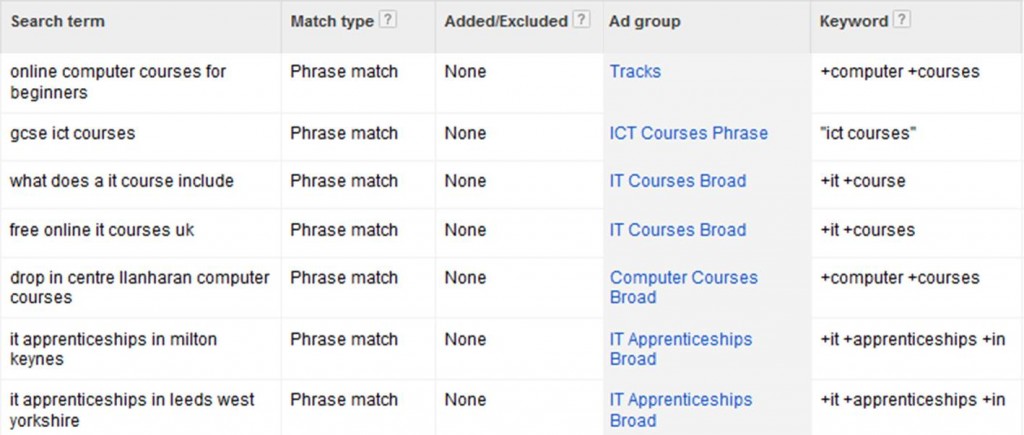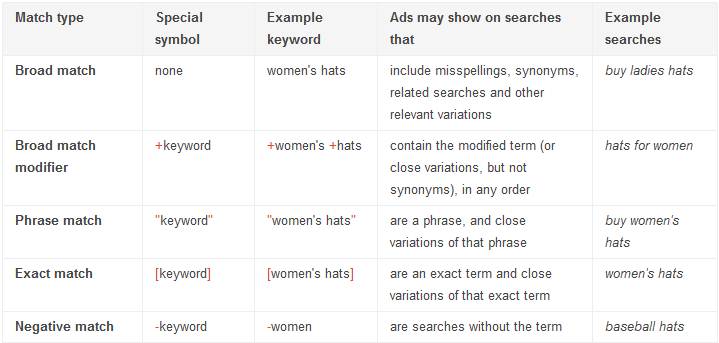After whisperings within the industry, which began a few weeks ago, Google finally announced last Monday (April 14th) that they would be removing the query from Adwords referral data, preventing analytics packages from being able to see the specific terms sending you Google PPC traffic.
In many ways this move was inevitable as Google continued to come under fire for their apparent double-standards around user privacy – allowing query information to be passed for paid search activity (which makes Google money), but not for organic search activity (which does not make Google money).
Widespread panic and confusion!
This move was both preceded by and greeted with the usual sensationalism and scare-mongering by many industry sources. This is perhaps not surprising given the impact of Google’s changes last year, which blocked all organic search keyword data and left many SEO practitioners if not totally blind, then certainly partially sighted, whilst they adapted to new ways of working.
The truth is still out there…
The reality and the impact of what has happened are thankfully much less catastrophic. Pretty much all of your data is still there if you know where to look, and how to set up your Adwords account.
As Google are no doubt well aware, completely removing advertiser’s visibility of what is and isn’t working for them would be a fairly rapid route to reduced spend, less confidence and, ultimately, less profit for Google. Last week’s move is a long way from that kind of paid keyword data blackout.
What have we lost?
The critical distinction is that Google no longer passes QUERY data. This is the exact term a user searched for before clicking your ad.
So for example, if you are bidding on the keyword ‘cheap holidays’ on phrase match your ad could be triggered by queries like ‘cheap holidays to France’, ‘buy cheap holidays’ etc.
Previously you could see both keyword data and query data in 3rd party reports, so you could see that it was actually the query ‘buy cheap holidays’ that drove a sale. From now you will only have keyword data, so you will only know that a sale was driven by the phrase match keyword ‘cheap holidays’.
As a result those most impacted by this change will be the accounts which are heavily reliant on small numbers of phrase or broad match terms.
In the above example if you had ‘buy cheap holidays’ created as a keyword in your account, as opposed to simply being triggered by the keyword ‘cheap holidays,’ then you would have full visibility of it within keyword reporting.
What do we still have?
You can still pass KEYWORD data, along with campaign data, ad copy data, match type and more within the URL of your keyword. So whilst you can no longer see the exact search query used in 3rd party systems you can still see the keyword in your account that triggered your ad.
It’s also important to remember nothing is being lost from within Adwords. This change is around security and privacy and as data in Adwords is anonymous and proprietary there are theoretically no issues here.
Getting the most out of what we have
For most advertisers everything they need in terms of queries is still available within Adwords itself. All of your search query data is available through search term reports as before, and if you want to ally this with conversion data you just need to set up Adwords conversion tracking.
Adwords Search Query Report
For any reporting, or use of query data outside the Adwords eco-system, keyword data should be more than sufficient, but to get the most detailed picture you should aim to make your keyword data as close to search query data as possible…
Improving your keyword data
At Fusion Unlimited we have long been advocates of detailed account structures and maximising use of exact match keywords. If everything in your account were set up on exact match then, effectively, your keyword and query would be one and the same thing, and this change would have no impact on your data. The issue with that approach is that you would be limiting your access to the long-tail and opportunities for account expansion.
The best compromise is to use phrase match and even broad match in a controlled manner alongside exact match. You can then use the search query report within Adwords to mine new keywords and add these to your account on exact match, allowing you to pass this data to any third party systems you are using, as well as a host of other benefits that come with more finely-tuned keyword targeting.
The more you grow your exact match keyword portfolio, and reduce the volumes you are driving through phrase and broad match terms, the closer your keyword data will be to the search query data.
Match Types Explained
Image sources:
Shredder – https://www.flickr.com/photos/85638163@N00/
Match types explained – Adwords Help Centre








